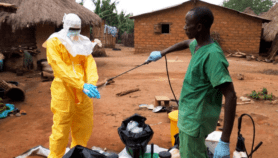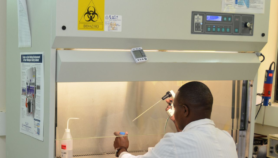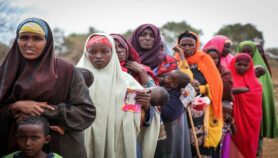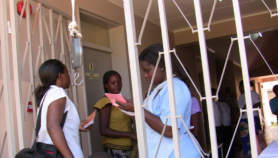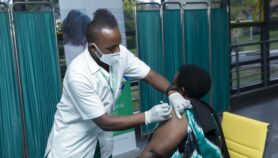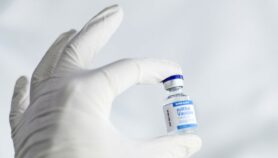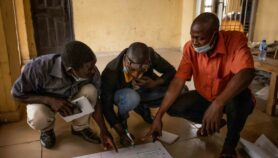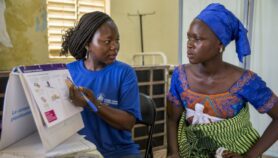28/05/21
COVID-19: Africa is grappling with vaccination efforts
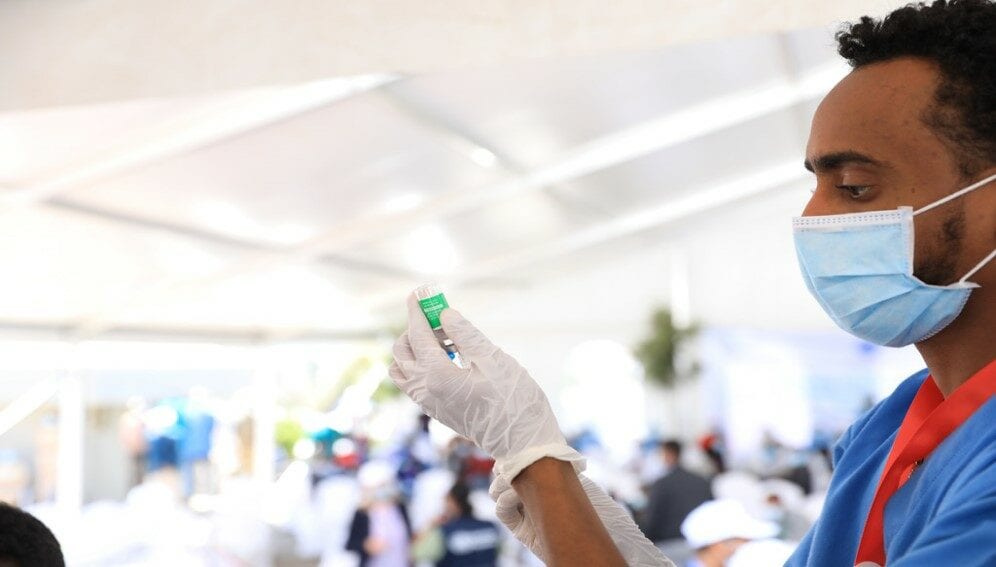
By: Gilbert Nakweya
Send to a friend
The details you provide on this page will not be used to send unsolicited email, and will not be sold to a 3rd party. See privacy policy.
[NAIROBI] Whereas the COVID-19 pandemic is having severe impacts on Africa’s economies, characterised by job losses, budget cuts and reduced incomes for many people, the continent is currently grappling with vaccine roll-out efforts.
As scientists, researchers and governments spearhead efforts to curb the spread of the pandemic, vaccination has become the main focus in battling the virus. However, African countries are grappling with COVID-19 vaccine introduction efforts, mainly due to inadequate funds and limited doses.
“Africa could be staring at a dark moment in the not-so-distant future.”
Gilbert Nakweya, Journalist
From an online press briefing last week (20 May) by the World Economic Forum, in partnership with the World Health Organization, the World Bank, and the bank Standard Chartered, it became clear to me that COVID-19 vaccination efforts in Africa are being hampered by, among other things, low doses, inadequate numbers of healthcare workers to administer shots, insufficient cold-chain storage facilities, and poor logistics and transport links to remote areas, especially in dispersed rural populations.
There is no denying, to me, that Africa could be staring at a dark moment in the not-so-distant future if the situation prevails for much longer.
Speakers at the media briefing were concerned that delays in procuring vaccines in Africa will delay vaccination programmes and therefore lead to greater COVID-19 control efforts. This means more economic impacts such as job losses when countries are forced to apply non-pharmaceutical interventions such as curfews and restrictions on the movement of people.
According to Matshidiso Moeti, WHO Africa regional director, the continent has received 18.2 million doses, just over a quarter of the 66 million doses targeted by the COVAX facility between February and May this year. As of last week, 4.7 million COVID-19 cases had been reported in Africa, while 127,000 lives have been lost. To date, 24 million people in African have received at least one dose of a COVID-19 vaccine, while 5.5 million have received two doses.
“When we look at access to the vaccines, we see great inequalities across countries,” said Moeti, citing Seychelles as one of the most vaccinated countries in the world, with 67 per cent of the population having received at least one dose.
“The supply gap can be closed if countries with surplus doses set aside a percentage of vaccines for COVAX,” said Moeti, lauding a US pledge to share 80 million doses with other countries.
Dena Ringold, World Bank regional director, human development, west and central Africa region, said COVID-19 is exacerbating poverty levels in Africa, with the bank estimating that every month of delay in COVID-19 vaccination could cost Africa close to US$14 billion in lost GDP.
“The uneven pace for economic recovery in developed nations poses a risk to Africa as the continent is not experiencing significant capital inflows necessary for economic recovery,” said Razia Khan, Standard Chartered head of research and chief economist, Africa and Middle East.
I agree with the speakers that sharing of vaccine doses, especially from developed countries, would increase the number of people being vaccinated against COVID-19 in the global South and significantly contribute to global efforts in battling the disease.
In a continent where 14 countries have vaccinated less than 1 per cent of the population with a single dose, and where four countries are yet to commence vaccination against COVID-19, Africa’s efforts to curb the disease could be in limbo. And, until the spread of COVID-19 is controlled globally, no one can be safe in such a connected world.
It is clear that low vaccine doses and teething problems in vaccination roll-outs, if not solved, will continue to undermine the continent’s control efforts. Development partners such as WHO, Gavi, and governments need to work together to increase COVID-19 vaccinations, build strong health systems, and construct new models for business recoveries.
This piece was produced by SciDev.Net’s Sub-Saharan Africa English desk.






